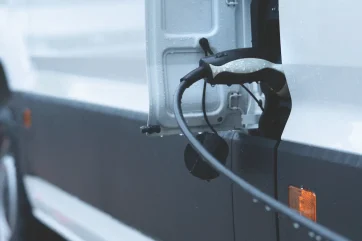
The exemption of commercial vehicles from a new pay-per-mile tax on EVs has been welcomed.
The measure was the most significant motoring announcement in Chancellor of the Exchequer Rachel Reeves’ Budget, delivered yesterday, and will see electric cars taxed at 3p-per-mile from April 2028, while plug-in hybrids will be subject to a 1.5p-per-mile charge.
Reacting to the Budget, Mike Nakrani, CEO of fleet electrification company VEV, said: “The decision made in the Budget to exclude electric commercial fleet vehicles from eVED is a smart and welcome move. It recognises the essential role fleets play in the UK economy and removes an unnecessary cost barrier for operators looking to go electric.
“The government has also made real progress with the Depot Charging Scheme, which is already helping fleets well along the path to installing reliable, high-power charging at their depots. But to unlock the full potential of commercial e-fleets, this support must go further.
“Expanding the scheme, in addition to the measures speeding up grid-connection processes and backing smart-energy solutions, would give businesses the confidence to electrify at scale.”
The most significant Budget announcement relating to LCV operators regarded fuel duty, which remains frozen. However, the extra 5p reduction introduced in 2022 will be phased out from September next year.
Reacting to this, Logistics UK acting chief executive Kevin Green said: “Instead of nurturing the green shoots of economic recovery, the government risks stamping them out.
“The increase in fuel duty announced in the Budget will mean hundreds of millions in increased taxes for logistics businesses, much of which will be passed onto households and businesses, as well as hitting motorists directly – fuelling inflation across the economy.
“It is a short-sighted decision that fails to appreciate logistics’ role in the economy – logistics costs are embedded in all products from food and medicines to construction materials and consumer goods: increasing logistics taxes mean increased costs for everyone.”





